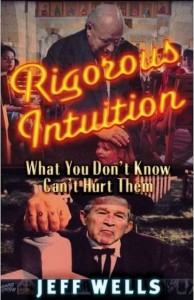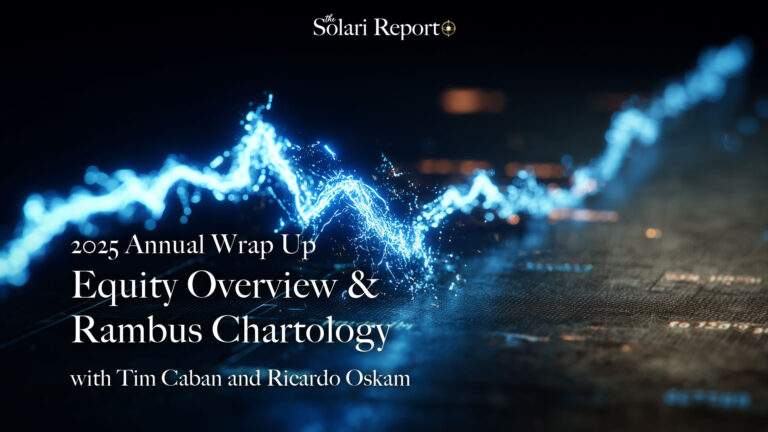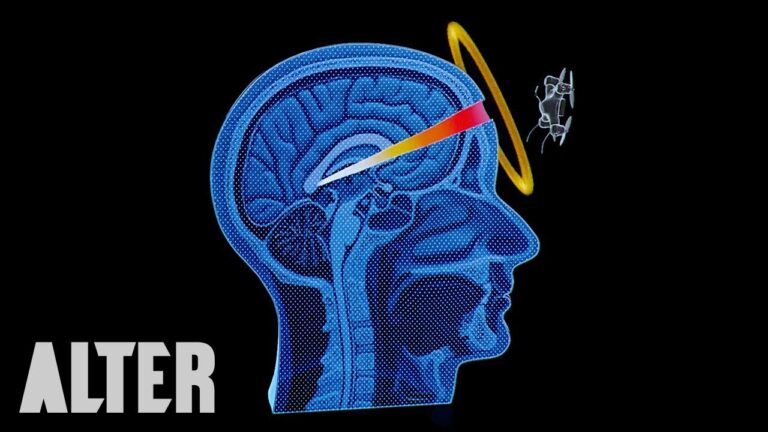
In 1997, a strategic planning group at the CIA made a visit to my company in Washington. They brought with them a woman whose job and title were classified. I was not allowed to know them. She communicated throughout the meeting that she held my work and me in utter disdain. Upon listening to my presentation on how small business and communities in America could be strengthened, she looked at me and sneered, “You know what your problem is? You don’t understand where evil comes from.”
She was right. Forced by circumstances — arranged, I suspect, by her colleagues back at Langley — I spent the years after meeting her in a concerted effort to understand where evil comes from. Yet, here I sit many years later still not having an answer to this profoundly important question. Where does evil come from?
Our economic problems are symptoms of a problem we have with evil. So if we want to address our economic problems, we have to deal with the root problem — the ascendancy of evil and its effective use of invisible weaponry, including financial weaponry
How do we navigate in a world where it is impossible to obtain the information we need to see our way clearly? If the mathematics of time and money can not help me understand phenomenon, then I try to navigate through common sense and the human heart. I view events through a spiritual prism, trying to live with uncertainty — to know what I don’t know and embrace this ambiguity with faith and grace.
This is why I have always enjoyed Jeff Wells’ blog Rigorous Intuition. Wells has a masterful way of dealing with some of the darkest and weirdest aspects of life on planet earth. Here is a man whose search for truth is without censorship. There is little urge to seek a shallow certainty. There is courage here.
Wells just published a new book, Rigorous Intuition: What You Don’t Know Can’t Hurt Them. If you want to contemplate real life outside of any bubble, this book is recommended. In a series of short essays drawing from his blog, Wells gives you many more questions than answers, some profound insights, delightful laughs and the pleasure of spending time with a fine writer.
Wells can not yet answer the question, “Where does evil come from?” Rather, he invites us to explore with him and helps us to stare into the abyss of evil and unknown with integrity and humor.






















































































































I wish there was something firm there, but as you try to grasp it, it evaporates. As far as “evil” goes, I don’t believe the nature of man is evil or fallen generally, although there may be evil men and devil or devils. I believe there is a tendency to simplify things and as a result distort that word of god.
1) I very much agree with Daniel Sauerborn: “It is very abstract to say evil. … Highly abstract words lead to confusion and lend themselves to long unresolved conflicts too.” Not only is “evil” a highly abstract word (a lot like “crime”), it has become highly politically and emotionally charged (though political and religious and leaders who act and talk with the assurance of God himself–this is often a wicked twist in itself). This latter situation makes it a bad word to convey meaning under many circumstances.
2) When one uses an abstract word one risks a serious category error: “Mistaking the map for the territory” (Alfred Korzybski, see also Gregory Bateson’s work also), but typically “evil” is so abstract or ill-defined that it is not even a decent map. Cannot evil can cover a multitude of sins? (Note a double interpretation which furthers the illustration.)
3) Catherine: I would bet the agent who was visiting you was pulling off a psy-ops (psychological operation) and was a specialist. In the type of high-level situation you describe, it is normal to study a person and then attack what looks like their weaknesses: purposes could be to confuse, divert attention, create self-doubt, and/or subtly, or not so subtly, intimidate. Consider yourself honored to get such professional attention. Time prevents me from saying more.
4) It seems to me that the major theme of Western “Civilization” is Power and Conquest. This is the stuff of murder, rape, plunder, torture, genocide–evil for short. This is our own history and in our characters. No one completely escapes their culture. An important step is to acknowledge it. (No easy answers, and answers vary with the person. It doesn’t mean you like it.) This inheritance doesn’t magically go away, although it seems it can lay low for a while. Will Rogers:
“You can’t say that civilization don’t advance…
in every war they kill you in a new way.”
Another example: The Chinese invented gunpowder and cannons, but they used them for fun and ceremonies (I expect). It was the West that turned them into weapons. Many of the native american cultures were exceedingly peaceful by our standards–some still are.
(I think Daniel’s entire post is valuable. The question of evil has been around a long time. Different cultures give surprisingly different answers. Must stop here. I have had personnal experience with point 3 above material.)
“Some humans ain’t human
Some people ain’t kind
You open up their hearts
And here’s what you’ll find
A few frozen pizzas
Some ice cubes with hair
A broken Popsicle
You don’t want to go there”
Song : Some humans ain’t human
Artist : John Prine
In the matter of “evil”, what is “it”, how to isolate it and confront it, the matter is actually simple – but MUST be understood as an aspect of Absolute Truth. In order for this to happen – Absolute Truth must be acknowledged as the very essence of all that in fact exists; both as a perceived “good” and a perceived “evil”. Without an absolute and “transcendant” criteria – establishing something as in fact objective evil is not possible. The notion that something is evil – as opposed to simply “undesirable” by the majority – is merely a fanciful conception. What is touted as ‘savage” or “ferocious” actions by a brute predator in the animal kingdom – is hardly assigned the qualification of “evil”. Such behaviour – is taken as merely “nature” in all its glory – just doing what nature does. Science ascertains that such behaviour is dependably predictable as it is expressly determined that all life forms BUT for the human – are in fact working under the influence of the dictations of nature, with such “natural” actions described as “instinctual” and though they appear to include some degree of “choice” or individual volition – DO NOT exhibit a reliance on any sort “value” or “moral” basis save but the service of the basic functions that generate, sustain and protect that “life” for as long as is possible. Thus no beast is held “accountable” for any action which would be unacceptable within human society, were it excercised by a human being in full control of their wits and senses! In short then – the lion is not described as “evil” though it technically sustains its life and the lives of the entire pride(mates and offspring)by ferocious acts of theft and murder – on a daily basis!
If man is to held accountable for his actions – when they are at odds with the legitimate ambitions of even a single other human – then an agreed upon set of criteria are needed to establish – without doubt – what is not just undesirable behaviour by the majority – but in fact is firmly and demonstrably behviour that is PROHIBITED by the ultimate source of NATURE itself.
Without understanding our actual origin: who and what we are, where we come from, to whom we owe are very existence, and the obvious shared purpose of our obviously “shared” sojourn here within the temporary world of matter – establshing any action as “evil” is not possible. Sure we may assert with great emotional conviction or even our own personal sense of “logic” or reason. However – that is as far as it goes and I would venture a guess, that the very men who have ALWAYS employed the “law of the jungle” in matters economic with – inter alia – confiscation of the wealth of others via fraud and murder – did and do not recognize any “tuth” but their own subjective version of it and thus do not allow other’s vision of desirable or not so – to interfere with their acts of murder and theft; no matter how loudly they claim such actions to “wrong” or “evil”.
Common sense tells us that man has basic needs in order to sustain his life and the lives of his offspring. Nature is so designed that such needs are in fact easy to meet. He can meet these needs with a modest amount of work. He can – in a natural society – exchange his labor – for the sum total of his basic necessities. Nature demonstrates that all life forms accumulate just enough to sustain themselves via what in human society would term “theft” and/or “murder” and not a fraction more. And this “animal” existence operates under stringent “laws” that are only rarely violated.
Man only – demonstrates an insatiable impulse to accumulate more than his quota AND if possible – without the normal necessity of working himself to acquire those necessities – if he can find a method of “capital”izing on the efforts of others to acquire them. He can do this “legitimately” via the simple system of trade – OR he can do this “illegitimately” via theft, fraud and murder – using the arts of persusion, then coercion and finally murder(war).
“Evil” is merely acting in the interest of oneself or one’s “extensions” ie family or friends – to secure one’s necessities and beyond – by means of any form of fraudulent coercion and when necessary – murder.
Though one so engaged is really doing what the lion does in nature – sustain his life with the sacrifice of another beast’s life – he has both the means and wisdom – the volition – to refrain from so doing – but he does not.
ONLY when he can be correctly persuaded to see that it is precisely because he is not merely a material body – but in fact a spiritual living being – and that his existence is a gift WITH attendant obligations – to the origin of his existence – can he or she realize that any attempt to live as an only slightly more capable “beast” at the “expense” of the life of even a single other living being – save but in the manner prescribed by the Origin of this entire system – is NOT defined as merely “undesirable” by the majority – and thus as “Evil” – but is in fact – UNDESIRABLE by the Supreme ORIGIN; God as it is referred to throughout history and the world – and it is PRECISELY because all such fraudulent extravagance and the murder needed to sustain it ARE so utterly displeasing to our Creator – so unwanted and so unecessary by Him – that such actions can be defined as “Evil”.
Evil is merely wanting more than one’s prescribed quota needed to adequately sustain ourselves and employing any and all forms of coercion (fraud and murder) to acquire it.
I believe monotheism is a source of alot of the evil in this world. Whoever came up with the idea of one supreme god must have had a mental illness. As soon as you have one supreme god, all other gods are inferior and competitors. The followers of these gods are the enemy and must be eliminated for the glory of the supreme god and the extablishment of his kingdom.
It leads to genocide of the followers of the lesser gods by the righteous followers of the supreme god. The semitic religions (Judiasm, Islam, and Christianity) are aggressive religions that will kill others for the sake of rightousness.
In A WARNING TO HINDUS BY Savitri Devi, she warns the Hindus that Islam is an agressive religion that they must oppose if their culture is to survive. The first few pages of the book hit me when she said that the first principle of a decent religion was the principle “
THOU SHALT NOT KILL.” The mormon scriptures adds a bit to that (which I like) when it says “or do anything like unto it (killing that is).” An additional piece from the mormon scriptures (the book of Moses) is the secrets of Cain which was thru a blood bound oath and covenant of a conspiracy to kill secretly to make a profit and become financially free through the theft of his brothers life and property. Joseph Smith was a high ranking mason, so maybe this is how he came to know of these conspiracies which he said ruled the world today.
What we actually have is not plutocracy, but PSYCHOPATHCRACY.
Some of it is documented by a noted Psychologist, Dr. Robert Hare: http://www.hare.org/
It would explain why we have so much evil, and why our psychopathic leaders don’t have conscious we normal people have.